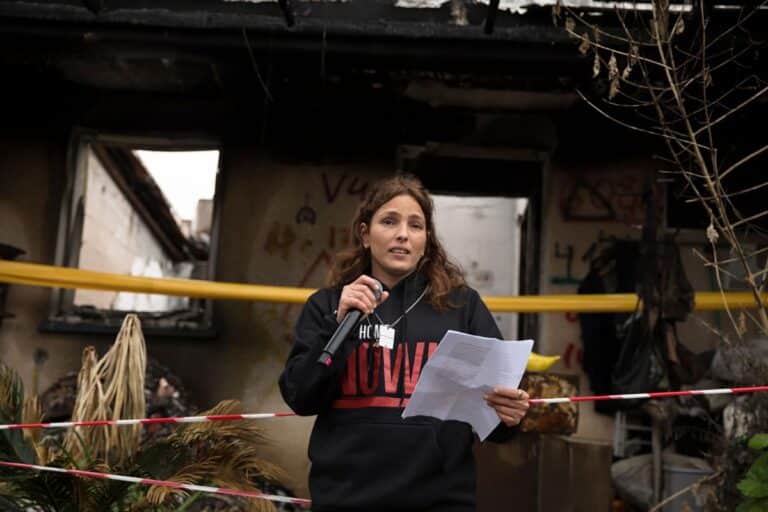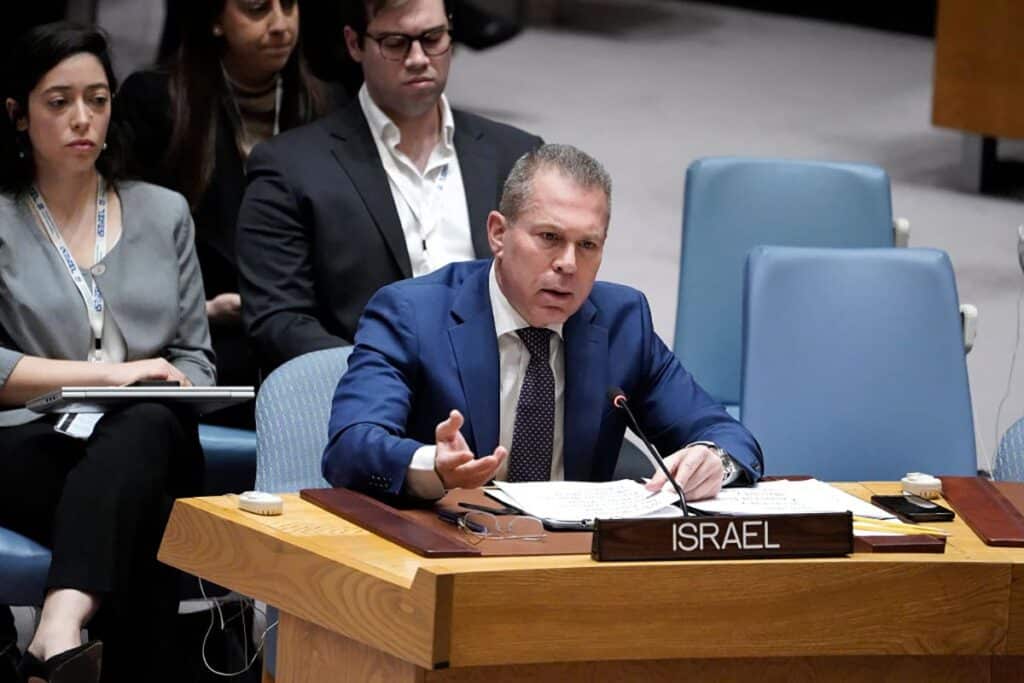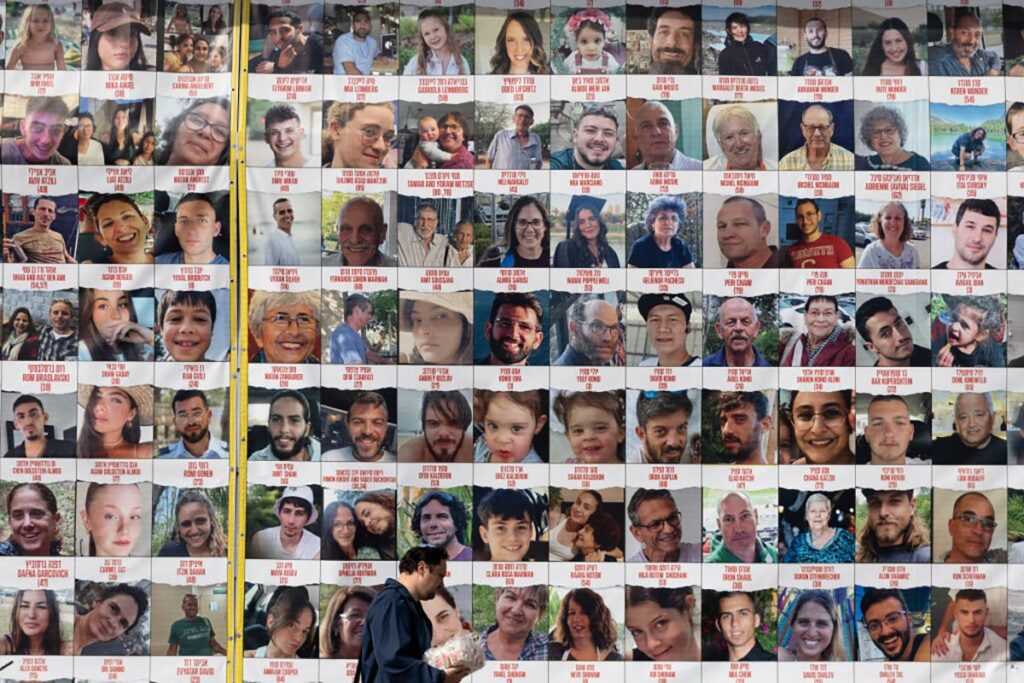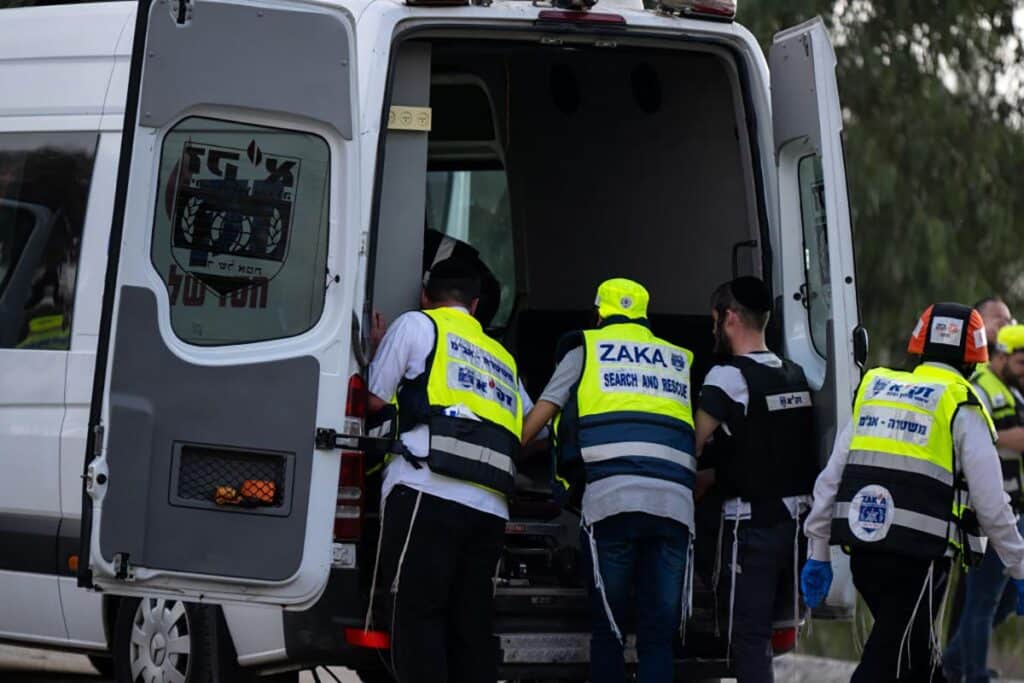
The war between Hamas and Israel has surpassed 176 days, with each week bringing new stories of both tragedy and hope.
Here are the main stories from this past week.
1. U.N. ceasefire resolution passes after U.S. abstains from vote

With the U.S. deciding not to veto the measure, the U.N. Security Council on Monday approved a resolution demanding an immediate ceasefire in Gaza and the immediate release of the hostages.
The U.S. decision to abstain outraged Israeli officials, with Prime Minister Benjamin Netanyahu claiming that the resolution encouraged Hamas to harden its stance and scuttled ongoing negotiations for a ceasefire and hostage release.
After the decision, Netanyahu announced that he was canceling an Israeli delegation to Washington. The Israeli delegation was supposed to meet with U.S. officials to discuss an expected Israeli invasion of Rafah in southern Gaza. However, Israel has reportedly been working to reschedule the meeting since then.
U.S. officials rejected Netanyahu’s claims about the resolution’s impact on Hamas, saying the terror group had already hardened its stances before the resolution was approved.
Why it matters: Since the beginning of the war, the U.S. has repeatedly vetoed UNSC resolutions demanding an immediate ceasefire in Gaza. The resolution on Monday was the first that the U.S. did not veto.
Netanyahu’s decision to cancel the Israeli delegation’s visit to Washington showed the increasing tensions in the relationship between the U.S. and Israel. Netanyahu and U.S. President Joe Biden have butted heads repeatedly throughout the war on issues such as humanitarian aid to Gaza and a planned invasion of Rafah.
2. Hostage talks fall apart…again

Ceasefire and hostage release negotiations between Israel and Hamas fell apart on Monday, with the Israeli delegation leaving the talks after Hamas hardened its stance on its demands.
Hamas told mediators that they would only accept a deal in which the IDF completely withdraws from Gaza, Palestinians are allowed to return to northern Gaza, and prisoners are released. Israeli officials said the talks hit a “dead end” due to these demands.
Despite the halt in negotiations, the U.S. State Department and several diplomats said that talks haven’t fully ended and that there is still hope for a deal. Additionally, on Thursday, the Wall Street Journal reported that negotiations are set to start up again in Cairo next week.
Digging deeper: Talks between Israel and Hamas have fallen apart and restarted several times in the past few months.
The central divide between the two sides has reportedly been on ending the war and allowing Palestinians to return in large numbers to northern Gaza. Israeli officials insist that Hamas is sabotaging the talks in an attempt to spark further violence in the region, while Hamas claims Israel isn’t being flexible with their demands.
3. High Court and government clash over Haredi draft

Israel’s government faced turmoil on Thursday when the High Court of Justice announced that the government could no longer defer the conscription of Haredim to the military and must stop funding yeshivas where undrafted Haredim study.
The previous law regulating the exemption for Haredim expired in June 2023, technically requiring the IDF to begin drafting Haredim. However, the government approved a decision not to draft them while working on a new law.
A complaint against the decision was filed with the High Court, which gave the government until this past Wednesday to explain why it should be allowed to defer the draft of Haredim.
Efforts to reach an agreement on a new bill were unsuccessful, despite meetings between Prime Minister Netanyahu, government officials, and Haredi party leaders. The failure to formulate a new law led the High Court to issue its ruling.
Why it matters: The debate over drafting Haredim into the IDF has been a longstanding issue since the founding of the state. This conflict has gained urgency during the ongoing Israel-Hamas War, with many arguing that Haredim are not equally “bearing the burden” of protecting the country.
In February 2024, Israel’s Defense Ministry proposed laws to extend IDF service due to manpower shortages. This proposal reignited discussions about drafting Haredim to address the shortfall, with arguments that extending average service length would be unnecessary if Haredim also served.
Haredi parties in the coalition have set this issue as a red line, raising questions about whether the court order will lead them to leave the government and spark elections. It remains unclear how the government will enforce the ruling as they would need to arrest tens of thousands of people who would be required to draft.
4. Israeli hostage speaks out about sexual abuse in captivity

Amit Soussana, a resident of Kfar Aza who was kidnapped by Hamas on Oct. 7, spoke out about sexual abuse she endured during her captivity, in interviews with The New York Times.
Sousanna, who was released in the hostage deal last November, shared that she was raped and beaten at gunpoint by one of her captors. She also described the constant movement of hostages, including through private homes, offices, and tunnels, where they were subjected to torture and interrogations.
Incidents of sexual violence have been reported from both hostages and accounts of Israelis murdered on Oct. 7.
On March 4, Pramila Patten, the U.N.’s Special Representative of the Secretary-General on Sexual Violence in Conflict, published a report stating that there is “clear and convincing information” that hostages being held in Gaza were subjected to sexual violence.
Patten added that there are “reasonable grounds” to believe that hostages still in captivity are still being subjected to sexual violence.
Digging deeper: This is the first time that a hostage subjected to sexual abuse has gone public with their experience.
Hamas and others who have denied reports of sexual violence have often emphasized the lack of public testimonies from victims. Basem Naim, a spokesman for Hamas, accused Soussana of fabricating her account, questioning why she had not spoken up until now.
Israeli President Isaac Herzog praised Soussana for her testimony in a post on X, stating that she “speaks for all those who cannot speak.”
5. U.S. sends mixed signals on planned Rafah invasion
Although U.S. officials have publicly opposed the IDF’s planned invasion of Rafah in southern Gaza and declined to veto this week’s U.N. resolution calling for an immediate ceasefire, behind closed doors, they’re reportedly supporting the operation as long as civilians are protected well.
Israeli Defense Minister Yoav Gallant visited the U.S. this past week, meeting with senior U.S. officials to discuss various topics, including hostage negotiations, humanitarian aid to Gaza, and a planned invasion of Rafah.
According to the Wall Street Journal, the discussions between Gallant and U.S. officials focused not on stopping the invasion, but rather on strategies for evacuating and safeguarding civilians.
As these talks continue, the IDF has started preparations for the Rafah operation, isolating the city and purchasing tens of thousands of tents to shelter evacuees, Israel’s Channel 12 reported on Wednesday.
Digging deeper: While the U.S. seems more open to an Israeli operation in Rafah, finalizing plans that both Israel and the U.S. fully endorse could take months — time Israel may not have as international pressure mounts.
In the meantime, U.S. officials continue to publicly oppose the invasion. U.S. Vice President Kamala Harris warned last Sunday that invading Rafah would be a “huge mistake,” adding that she was not ruling out that there would be “consequences” for the U.S.-Israel relationship if the invasion proceeds.


